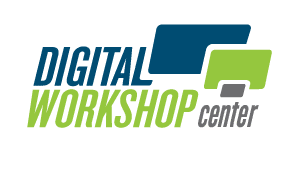Why You Need to Add HTML & CSS Skills to Your Resume

HTML and CSS are two essential web design languages. HyperText Markup Language, aka HTML, gives a webpage content structure, for example, headings, paragraphs, or images. CSS, or Cascading Style Sheets, is a presentation language created to style the appearance of content such as fonts or colors.
While these powerful coding languages are commonly used by web developers, you may find yourself in a position where you need them in a professional setting, too. Having even just a basic knowledge of these languages could make a huge impact on you and your resume!

Five reasons to add HTML and CSS skills to your resume
1. Add some diversity to your skill set
Plus you don’t need to be an expert. Being able to understand how to utilize these languages can help you add content and make minor changes to websites even if your not a “web developer”. For instance, you may need to make updates to event pages or add blog posts. You’ll be one step closer to better results if you know at least the basics of HTML and CSS.
Having a diverse skillset gives you value. The more duties you can perform, the more needed you will be to an organization. Expanding your skillset to include HTML and CSS skills will add value to you and your resume.
2. Stand out in the crowd
Let’s say you are looking for a digital marketing position and you have HTML and CSS listed on your resume, it’s very likely the other candidates won’t. Digital marketers are not traditionally trained to have HTML and CSS skills. However, having HTML and CSS knowledge has some advantages for marketing. One example, is creating custom emails and templates by organizing and styling it using HTML and CSS. Marketing has a competitive job market so it’s worth learning skills that not only improve your marketing skillset but helps you stand out in the crowd.

3. Take your design skills to the next level
Modern designers often work with websites or web applications and knowing HTML and CSS can help create successful designs. As a designer, you have to understand how things work and be able to spot errors. Plus coding helps make your creations more interactive. Instead of presenting flat mockups, you can create moving prototypes and animations to show exactly how each design element will function.
A recent industry study of 500 job offers revealed that most employers expect both entry-level and senior designers to have HTML, CSS and JavaScript skills. So if you want to take your design to the next level learning coding skills would be a wise investment of your time.
4. Professional development
HTML and CSS are the foundation of the web. So, they’re also the foundation for taking your tech skills to the next level. Having a handle on the fundamentals will make learning another programming language (like JavaScript, Ruby, or PHP) a whole lot easier. Think of it as an opportunity develop new skills, stay up-to-date on current trends, and advance your career.
Professional development isn’t just helpful for you — it’s helpful for your employer, too. By having opportunities to learn, increase your skill sets, and stay up-to-date on industry trends, professionals like yourself increase your own worth while also adding to your company’s overall value.

5. Be an asset to any team
Being familiar with HTML/CSS helps ensure that you and your technical teammates are on the same page. This helps save time and streamline communications as you’ll have a better understanding of what it’d require to implement your new ideas.
Where to learn HTML &CSS?
The Web Design with HTML and CSS Beginners class, at Digital Workshop Center is an accelerated live online class. You will be guided from the beginning in a hands-on, small class setting lead by an expert instructor. By the end of the course, you will possess the skills and abilities to make a successful website and add HTML and CSS skills to your resume.
Register for an upcoming class here, or set up a student advising meeting and see if the full Frontend Web Development Certificate program is right for you.
